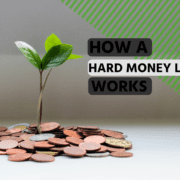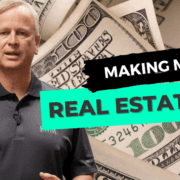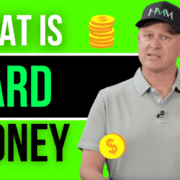5 Ways Beginners Win at BRRRR
Some people just win at the BRRRR method. How can beginners do it?
Cash-flowing rental properties… With little-to-no money down… That passively run themselves after fix-up… This is the stuff beginner real estate investors dream about. And it’s possible with BRRRR.
But there are a lot of ways to do BRRRR wrong that’ll wreck this beautiful dream.
How do successful investors make it work? Here are 5 ways beginners can win at BRRRR:
1. Understand the Meaning of BRRRR
BRRRR winners understand what BRRRR is – and just as importantly – what it’s not.
We aren’t just talking about the literal meaning: Buy, Rehab, Rent, Refinance, Repeat. We’re talking about understanding the strategy behind the BRRRR method. Successful investors understand the money side of these investments.
Types of Properties that Win at BRRRR
Foundationally, BRRRR means buying undervalued properties.
These properties have a lot of rehab needed, causing them to be valued much lower than other homes in the area. These houses are problems for someone else but opportunities for you. You can fix them up and get them in your rental pool.
We often see people who want to use the BRRRR strategy, but they buy their properties at 90% or 95% of the ARV. They buy close to retail price, and once they put the time, money, and effort into fixing up the property… They can’t even really use BRRRR.
BRRRR’s Two-Loan Strategy
BRRRR means using a two-loan strategy. At the beginning of the project, closing with a hard money bridge loan. At the end of the project, refinancing a traditional loan.
Using this strategy on an undermarket purchase captures the equity of the home to use to your advantage. If you buy a property too close to its ARV, the whole system falls apart and you lose your refinancing power.
To be successful with this two-loan plan, you have to search for undermarket properties you can get for 75% or less of the ARV. With this 75% rule, you can complete a BRRRR project with little or no money out-of-pocket.
Buying undermarket and using two strategic loans is the meaning behind BRRRR that winners fully grasp. But there’s much more to it.
What should you really look for when you buy for BRRRR?
2. Set Yourself Up for the BRRRR Method
There are two ways beginners can set themselves up for success using the BRRRR method: focusing on the numbers and putting together a team.
Numbers for Beginners
The BRRRR method is all about numbers. Beginners sometimes fail because they make a deal emotional and bid the property up. When buying properties, you have to stick to the math.
Your North Star for BRRRR investments is the 75% rule – the best properties only cost 75% of the after repair value.
The reason for the 75% rule is because that’s the number banks will rate-and-term refinance a conventional loan for. When you can do this type of refinance, you can finish up the deal without putting any of your own money in.
It’s smart to shop around for banks for your refinance loan, though. Some banks may allow you to buy up to 85% of the ARV, under certain conditions.
Get a Team Together
So you need good, low-priced properties. And the best way to find them is to build a good team. Especially as a beginner, you’ll need to know several of these kinds of people:
Realtors and Wholesalers
Knowing wholesalers and realtors can help you locate better properties and close with better deals.
Lenders
You’ll need private lenders for bridge loans and another lender for the long-term refinanced loan. Having relationships with lenders ahead of time speeds up a closing and can earn you a lower price.
Contractors
Ideally, from closing to refinance, BRRRRs are completed in 90 days. This means you’ll need contractors at-the-ready who can work efficiently and reliably to fix up your properties.
Property Managers
If you want your BRRRRs to be passive after the refinance, find a good property manager. A common beginner’s mistake is to take the first tenant who shows an interest – without any background checks or other renting requirements.
A good property manager can both find you better tenants and manage them for you. Many investors overlook this member of their team, but it can truly make or break your BRRRR experience.
Knowing several people from each of these categories gives you options to customize for each of your deals. Putting together a good and broad team will make the BRRRR method much easier and smoother — especially for a beginner.
3. Know What Makes a Good BRRRR Property
A good BRRRR property follows the 75% rule. But that’s not the only criteria you should follow. What else makes a good BRRRR property?
What to Look for in a BRRRR Property
Here are the factors successful BRRRR investors consider in their properties.
Single-family properties
For multi-family or commercial tenants, lenders have different requirements. They often need you to hold your loan for 12 months after purchase (or even 12 after tenants move in). That timeline doesn’t work well with the BRRRR method. You’ll have a much easier time with single-family homes.
Rent prices
“Knowing your numbers” also means knowing the rent prices in the area of a property. Cash won’t flow on your investment if you’re unable to charge enough rent.
Desirable Areas
Find properties people want to live in. If you wouldn’t want to spend time there, good renters probably won’t either.
Vacation Rentals
If you’re doing vacation rentals, do the research on:
- What areas people want to visit
- What the rates are in the area
- What third-party booking sites would be most profitable
- What fix up levels you’ll need
- Whether there are good hosts or property managers in the area.
Don’t Rush into Bad BRRRR Properties
Beginners fail at BRRRR when they don’t choose properties wisely. Don’t just buy property to buy property. You can own ten bad rentals and make no money. BRRRR should be a system that builds cash flow.
We see people do one or two BRRRRs then stop because it’s not what they expected. They put too much money in, or the area isn’t good, or their renters aren’t paying, or the rent isn’t enough to generate cash flow.
Those issues aren’t BRRRR’s fault. A prepared investor, beginner or experienced, can always succeed with BRRRR properties.
4. Know the Numbers of a BRRRR Deal – An Example
We always talk about “knowing your numbers.” But what exactly do we mean? Here’s an example of an ideal BRRRR property using the 75% rule.
Example Breakdown of a BRRRR Deal
After repair value (ARV) is the number the house should sell for once it’s all fixed up and on the market. This number is often dictated by what similar properties in the area are going for.
To get the best long-term rates, you refinance your second, permanent loan. In order for it to cover everything (i.e., you don’t have to put any money down), all your costs must be 75% or less of the ARV.
PURCHASE PRICE + REHAB + CARRY COSTS + LOAN CLOSING COSTS = 75% of ARV
Let’s say, for example, other properties in the area are selling for $200,000, so that’s your ARV. You want to spend 75% less than that, so we’ll do:
$200,000 X .75 = $150,000
When the ARV is $200,000, all costs of the job should only be $150,000 or less. This includes the closing price, carry costs, rehab costs, and any loan costs.
5. Know Good Lenders for BRRRR
People who win at BRRRR understand the two most important aspects of the process: getting properties undermarket, and organizing their lenders early on.
Lenders are an important member of your investment team. Here’s how to get them ready for your BRRRR investments.
BRRRR Lender Options
You’ll have a hard money or private money lender up-front. Then, in the second half of the project, you’ll have a more conventional lender with a traditional loan.
This traditional loan is usually 30-year with fixed rates, but comes with some constraints. You’re limited to ten properties with this kind of loan (including your own home). There’s also usually a limit on loan-to-value ratio, and conventional loans won’t let you put a loan in an LLC’s name.
Another option for this second loan is DSCR no-income loans. DSCR loans come in a variety of options: five- or seven-year ARMs, standard 30-year fixed mortgages, and more. Successful BRRRR investors know all their options for refinancing.
Set Your Lenders Up Ahead of Time
People who win at BRRRR set up all their lenders before they jump into a deal.
The amount loaned for the purchase and for rehab can very a lot from lender to lender. Good investors will always know how much their hard money lenders will give them.
Hard Money Mike, for example, does a lot of 100% loans if the cost is 75% less than ARV because we know the investor can easily refinance out. We know we can set them up with a rate-and-term refinance, and they’ll have no money out-of-pocket.
BRRRR winners don’t get into a property, get it fixed up, and then figure out the long-term loan. Winners figure out first whether they can get the cash out they need, and how.
Smart BRRRR investors have a pool of lenders they work with. They know what each lender can offer, and which will best fit their current strategy, ability, and deal.
You Can Win at BRRRR
Winners start as beginners.
This is a business. This is a way for you to make a living in real estate. Those who take the time to learn and get their team set up – those are the winners.
For help in setting up your team, going over your numbers, and getting your financing in order, reach out to us at HardMoneyMike.com.
You can also watch our videos on BRRRR strategies here.
Happy Investing.





